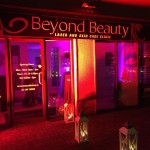The Work of a Beauty Therapist
The Beauty Therapist is a trained beauty expert. He/she may give treatments such as face and body massage, skin care, make-up, electrolysis, waxing, manicure and pedicure. Beauty Therapists are employed in beauty salons and health clinics and may also work in hospitals in the treatment of scars, birth marks, and post plastic-surgery treatment. Positions for Beauty Therapists may arise in the make-up departments of film and theatre productions and also in Beauty Schools as lecturers and instructors.
Persons working in the cosmetic departments of chemist shops and major stores are usually employed by cosmetic firms to market their preparations and are trained by the manufacturers as Beauty Consultants or Beauty Advisors, mainly for the purpose of selling their particular brand. Preference is usually given to persons with sales experience.
Educational & Other Qualifications
The minimum required age is seventeen years. Leaving Certificate standard, preferably with a Science subject, is essential for Beauty Therapy training. Biology is a useful subject.
Personality, maturity, and a sympathetic nature, a well-groomed appearance and an ability to get on well with others are essential requirements for the job. Good health is also essential as the work can be strenuous.
How to become a Beauty Therapist
Persons who are interested in this career should follow a training course leading to a recognised qualification in Beauty Therapy. Appointments as Beauty Therapists are usually obtained by personal application.
Training
Courses of training are available in private Beauty Schools and some Vocational Education Colleges. They cover the practical and theoretical aspects of beauty therapy. The usual length of a course is between six months and one year although shorter courses dealing in specialised subjects are also available in modular form. Training includes practical work to develop poise, confidence and ability, as well as instruction in the various beauty treatments and in the therapeutic aspect of beauty culture.
Examinations in Beauty Therapy are conducted by the Confederation of International Beauty Therapy and Cosmetology (the examining body of a professional organisation known as the British Association of Beauty Therapy and Cosmetology Ltd) and the International Therapy Examination Council (ITEC). The qualifications obtained upon successful completion of these examinations are internationally recognised. CIDESCO (Comite International d’Esthetique et de Cosmetologie) is the worldwide organisation which has approved schools for beauty therapy training in many countries, including Ireland, and the prestigious CIDESCO diploma is recognised worldwide.
Employment & Promotional Prospects
The demand for trained Beauty Therapists is increasing. Promotional prospects depend on ability, experience, and personal ambition. They include instruction posts in Beauty Schools. The Beauty Therapist may also start in a private business as a consultant. Beauty Therapists with a knowledge of business may obtain managerial posts in salons or health and fitness clinics.
Where to go for further information
Further information may be obtained from private Beauty Schools, Salons or Health Clinics (consult the Golden Pages and telephone directories) Your local FÁS Office.
Information supplied by FÁS


